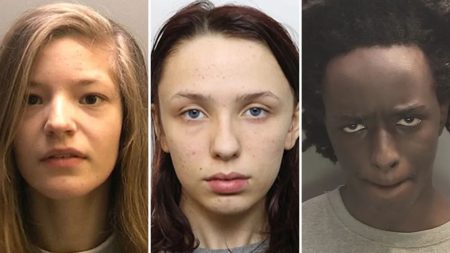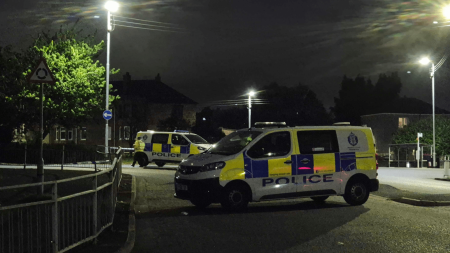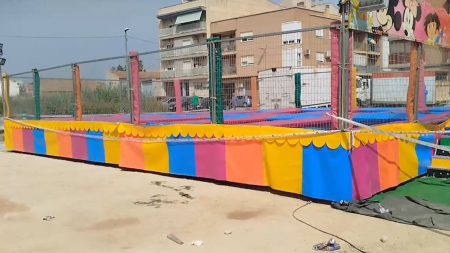The tragic murder of Jason Isaacs in Northolt, London, in 2017, became a chilling example of the potential consequences of violent drill music lyrics. Nearly a year before the murder, Joel Amade, the perpetrator, had written and recorded drill music containing lyrics that eerily foreshadowed the attack. Phrases like “stab first then talk”, “on flight mode when we walk”, and “I’ll put holes in your back” mirrored the brutal reality of Jason’s death, inflicted by eight stab wounds to the back. The release of two additional songs after the murder, further detailing the crime, compounded the family’s grief and outrage. Jason’s mother, Sharon Kendall, was horrified to witness the music video in court, recognizing the disturbing parallels between the lyrics and her son’s murder. This incident ignited a fierce debate about the role of drill music in glorifying violence and inciting criminal behavior.
Sharon Kendall became a vocal advocate for banning drill music, believing it directly contributes to violence and fuels a culture of crime. She argued that a ban could potentially save lives, citing the disturbingly graphic nature of drill lyrics, which often boast about criminal exploits with no regard for victims or their families. Her call for a ban was echoed by other families who had endured similar tragedies, witnessing the agonizing details of their loved ones’ deaths recounted in drill music. However, opponents of a ban argue that the focus should be on addressing violent lyrics across all music genres, rather than singling out drill music. They contend that censorship is not the solution, and that the underlying issues of violence and social inequality need to be addressed.
The case of Jake Fahri, known as the drill rapper TEN, further fueled the controversy. Fahri, who had served a life sentence for the murder of Jimmy Mizen in 2008, was found to have referenced the killing in his music. Lyrics such as “See a man’s soul fly from his eyes and his breath gone” and references to sharpening blades and watching a man “melt like Ben and Jerry’s” after being stabbed caused widespread outrage, particularly among Jimmy Mizen’s family. The revelation that the BBC had promoted TEN’s music on 1Xtra added further fuel to the fire, with critics accusing the broadcaster of inadvertently glorifying violence. The BBC defended its decision, claiming that their strict guidelines ensure that content does not glamorize violence and that decisions are made on a case-by-case basis.
Despite the ongoing debate, drill music continues to provide a platform for criminals to gain notoriety and potentially profit from their crimes. Several artists featured by the BBC had prior convictions for offenses including gun possession, violent disorder, and drug dealing. The endorsement of drill artists by figures like DJ Tim Westwood, coupled with the reach of platforms like YouTube and Spotify, allows these musicians to build audiences and generate income. This raises concerns about the normalization of criminal behavior and the potential for further harm. The case of Jayden O’Neill-Crichlow, known as SJ, who was offered a recording contract while awaiting trial for murder, highlights the disturbing intersection of criminal activity and the music industry.
The chilling nature of drill music lyrics is exemplified by numerous examples where artists have detailed their violent exploits. Kammar ‘Kay-O’ Henry-Richards, jailed for a gang-related shooting, boasted about the murder weapon in his music. O’Neill-Crichlow’s lyrics, detailing a “shank getting saucy” (covered in blood) and gunshots, allegedly inspired two 12-year-olds to commit murder. These instances raise serious questions about the impact of violent lyrics on impressionable young people and the potential for them to incite real-world violence. The families of victims are left to grapple with the trauma of not only losing their loved ones but also having their deaths glorified in music.
Sharon Kendall’s fight to have videos referencing her son’s murder removed from YouTube underscores the challenges faced by victims’ families. The lengthy process of getting these videos taken down highlights the need for greater accountability from social media platforms. While the Metropolitan Police have seen some success in requesting takedowns, the sheer volume of violent drill music videos online presents a significant challenge. The debate surrounding drill music is complex and multifaceted, encompassing issues of freedom of expression, censorship, social inequality, and the influence of music on behavior. Finding a solution that addresses the concerns of victims’ families while respecting artistic expression remains a significant challenge. The increasing use of drill music lyrics as evidence in court cases further complicates the debate, with some arguing it unfairly targets young Black artists and perpetuates negative stereotypes. The conversation around drill music is far from over, and its impact on society will continue to be a subject of intense scrutiny and debate.











